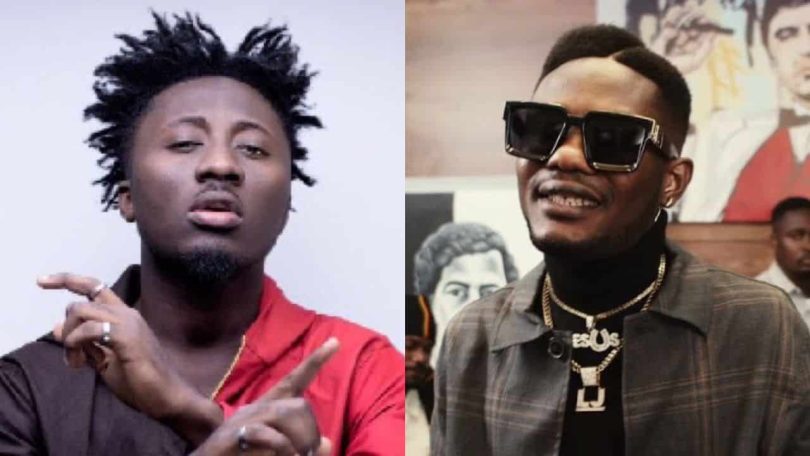Ghana’s rap scene has witnessed the rise of many talented artists, each contributing their unique style and perspective to the genre. Among these notable figures are Lyrical Joe, also known as LJ, and Amerado. Both artists have achieved the prestigious accolade of winning the Vodafone Ghana Music Awards (VGMAs) for the best rapper category, solidifying their places in the country’s hip-hop landscape. However, LJ has recently shared insights into their musical journey and artistic disparities, shedding light on the nuances that set them apart.
In an exclusive interview with Ameyaw TV, Lyrical Joe openly discussed the varying dimensions of their rap careers and how they diverge artistically despite sharing the common ground of being award-winning rappers. While both LJ and Amerado have secured the VGMA best rap performance award, LJ emphasized that this accomplishment is a testament to their individual skills and talents.
Acknowledging the significance of the VGMA best rap performance award, LJ highlighted that it’s not an achievement that can be easily attained. “It takes a whole lot,” he explained. “We are both award-winning rappers, as for that one I agree, but when it comes to rapping we are not equal.”
This assertion by LJ hints at a certain level of artistic rivalry that has been brewing between him and Amerado. The tension between the two artists surfaced more prominently in 2022 when they engaged in a back-and-forth exchange of diss tracks. The origin of their disagreement traces back to Eno Barony’s song “The Finish Line,” in which Amerado took a direct jab at LJ, asserting his dominance within the rap scene.
The catalyst for Amerado’s comments was LJ’s victory in the Best Rap Performance category at VGMA 2022. This achievement, which some fans expected Amerado to clinch following his win at the 2022 3Music Awards, seemed to have ignited a competitive spirit within Amerado.
However, LJ did not let Amerado’s claims go unchallenged. In response to Amerado’s assertion of superiority, Lyrical Joe released a fiery freestyle that not only questioned Amerado’s claims but also critiqued his craft and artistry. Through his freestyle, LJ made it clear that he sees their differences not just in terms of accolades but also in their approach to rap.
LJ’s interview and subsequent freestyle response showcase his dedication to his craft and his willingness to stand up for his artistic identity. The exchange between these two talented rappers highlights the passion and fervor that drive the hip-hop culture, where artists often use their music as a medium to express their views, engage in healthy competition, and ultimately elevate the genre as a whole.
As LJ and Amerado continue to evolve in their musical journeys, it’s apparent that their distinctive styles and perspectives are contributing to the vibrancy of Ghana’s rap scene. While LJ acknowledges their shared success in the award categories, he asserts that when it comes to their rapping abilities and artistic vision, they are indeed on separate paths. This candid revelation by LJ adds an extra layer of intrigue to the ongoing narrative of two prominent rappers carving their names into the annals of Ghanaian hip-hop history.







